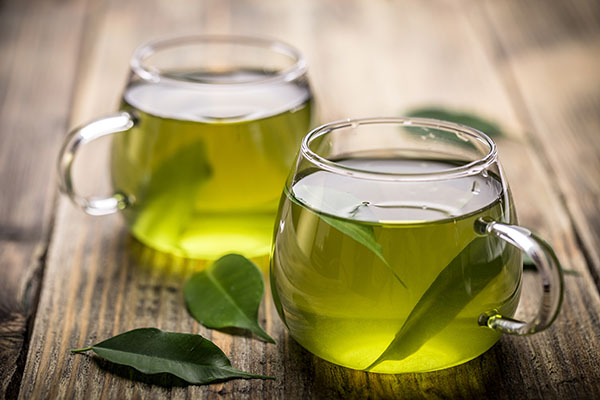 Parler
Parler Gab
Gab
The consumption of fruit and vegetables has been linked to a reduced risk of cancer. According to a report from the 2007 World Cancer Research Fund/American Institute for Cancer Research, foods containing vitamin C probably protect against esophageal cancer, with fruits in particular helping against gastric cancer.[ii]
Similar findings were observed in a 2016 study that saw "a marginally decreased risk" of esophageal cancer, squamous cell carcinoma and esophageal adenocarcinoma, along with a non-significant risk reduction in gastric cardia cancer, with each 100 grams (g) a day increase of citrus fruit intake. Consuming citrus fruits has also been tied to decreased bladder cancer risk.[iii]
Results from a 2019 study offered strong evidence that higher fruit intake is negatively associated with the risk of lung cancer among both current and former smokers, while vegetable intake is linked to a significantly reduced risk of lung cancer in current smokers.[iv] A meta-analysis also showed a correlation between fruit and vegetable intake and a reduced risk of oral cancer.[v]
2. Cruciferous VegetablesThe family of vegetables that includes cauliflower, cabbage, kale, broccoli and Brussels sprouts, is renowned for its outstanding action against cancer. Cruciferous veggies have been found to have anticancer properties, with research showing:
- A high intake was inversely associated with renal cell carcinoma risk among Americans, based on a meta-analysis[vi]
- A diet that includes cruciferous vegetables could be a crucial modifiable risk factor for ovarian cancer, the fifth leading cause of cancer-related deaths among women[vii]
- Consuming cruciferous vegetables was strongly associated with a reduced risk of prostate cancer progression[viii]
- Consuming cruciferous vegetables may reduce lung cancer risk among men who currently don't smoke[ix]
A yellow substance from the root of the plant Curcuma longa, curcumin is the main active ingredient in the spice turmeric with strong anti-inflammatory and antioxidant properties.[x] Due to the role of oxidative damage in a range of conditions such as cancer, atherosclerosis and neurodegenerative diseases, curcumin is believed to play an important role.
Research from 2001 showed that curcumin is safe in humans at up to 8,000 milligrams (mg) a day when taken orally for three months, providing chemopreventive properties.[xi] Curcumin combined with turmerones, the essential oil components of turmeric, may be a powerful intervention to prevent inflammation-associated colon carcinogenesis in animal models.[xii]
" … TUR [turmerones, a bioactive compound in turmeric] is a novel candidate for colon cancer prevention. Furthermore, we consider that its use in combination with CUR [curcumin] may become a powerful method for prevention of inflammation-associated colon carcinogenesis," researchers wrote in a study published in Biofactors.[xiii]
4. CoffeeIt's not only a morning pick-me-up but also a powerhouse against various types of cancer. A meta-analysis of prospective observational studies showed a link between coffee intake and a reduced risk of oral, pharynx, liver, colon, prostate and endometrial cancers, as well as melanoma.[xiv]
There is also mounting evidence of the cancer-fighting properties of coffee against liver cancer.[xv] A prospective cohort study involving 30,824 subjects echoed the finding in its probe of whether coffee, green tea and caffeine are associated with liver cancer risk, showing that coffee consumption significantly reduced the risk, while the same association wasn't observed for caffeine intake.[xvi]
A separate study confirmed the inverse relationship between coffee intake and hepatocellular carcinoma risk, with the protective effect detected in healthy populations as well as those with chronic liver diseases.[xvii] In addition, researchers found that coffee consumption may prevent liver cirrhosis from developing.
5. Green TeaGreen tea, another popular beverage around the world, scores high in chemoprevention. Among Chinese women, researchers concluded that higher intake of mushrooms slashed breast cancer risk in pre- and post-menopausal women and observed an additional reduced risk from the joint effect of mushrooms and green tea.[xviii]
In a randomized clinical trial of brewed green and black tea in prostate cancer patients prior to prostatectomy, green tea induced changes in inflammation and systemic oxidation, and the uptake of its polyphenols in prostate tissue displayed a potential role worthy of further research in preventing and treating prostate cancer.[xix]
In a population-based study, women who reported drinking at least one cup of green tea a day had a 54% reduction in ovarian cancer risk.[xx] Increased green tea consumption might even prove helpful in reducing the risk of colorectal cancer in those with unhealthy lifestyles.[xxi]
Read more at: GreenMedInfo.com
Ginger treats heavy menstrual bleeding
By News Editors // Share
Democrats revive Black Lives Matter one day after Biden endorses Kamala Harris for president
By News Editors // Share
Biden-linked MeidasTouch owner refusing to pay staff, editor quits
By News Editors // Share
By News Editors // Share
IT blunder by ‘Russia hacked the DNC’ firm CrowdStrike causes global chaos
By News Editors // Share
By News Editors // Share
Governments continue to obscure COVID-19 vaccine data amid rising concerns over excess deaths
By patricklewis // Share
Tech giant Microsoft backs EXTINCTION with its support of carbon capture programs
By ramontomeydw // Share
Germany to resume arms exports to Israel despite repeated ceasefire violations
By isabelle // Share










